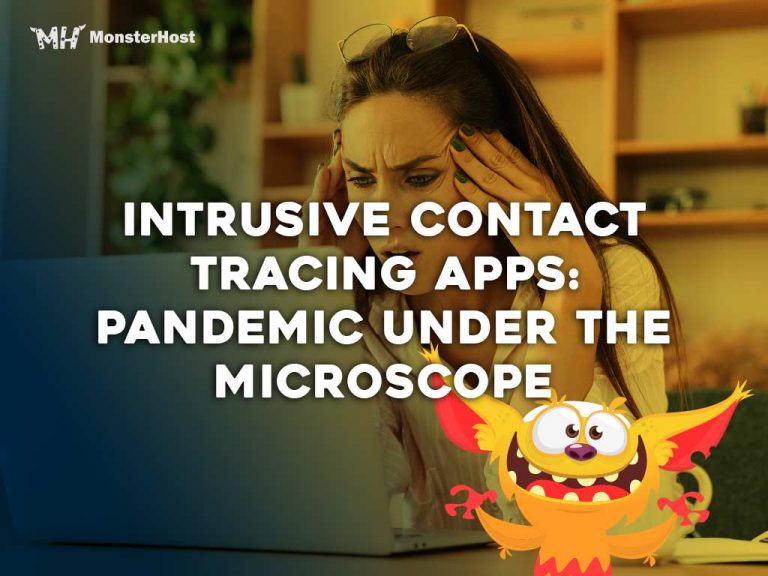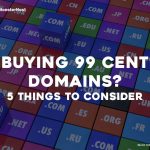2020 saw the wide adoption of contact-tracing apps due to the onslaught of the Coronavirus pandemic. Countries worldwide implemented the use of contact tracing apps to leverage the omnipresence of mobile devices to pinpoint the areas affected by the virus and to quell the spread of it. So, let’s take a deeper look into how these are being used by governments in respect to online privacy.
Table of Contents
Are contact tracing apps worth it?
Contact-tracing apps are instrumental in helping governments around the world monitor the infected and those possibly exposed to Covid-19. These apps work to help individuals avoid public spaces, crowded areas and avoid social calls. It puts the user on high alert to seek out medical attention if needed. When it comes to societal or public health, contact-tracing apps gather data, build and show virus hot spots on a map, and assist with modeling and prediction of the virus potential spread. For these reasons, contact-tracing apps have been seen as a game-changer to help to stave off the spread of the virus.
However, there is a fine line between aggregating data to help quell the pandemic and infringing on individual privacy.
How it plays out in the public
There is still much skepticism on contact-tracing apps is common, but some countries seemed to have calmed the fears of the general public better than others.
Finland, for example, managed to persuade 20% of its population to download the national contact-tracing app in one day. But there is a fine line between individual privacy and invasive data-collection and tracing practices. A danger exists where contact-tracing apps are collecting much more data than they need, and there isn’t enough being done about anonymization. Beyond that contact-tracing apps can be used for other purposes beyond finding a person’s or keeping people safe during the pandemic; for example, this happened in Singapore.
Singapore adopted the TraceTogether app. It was one of the first contact tracing apps in the world, and they rolled it out in the months following the spread of Covid-19. In fact, 80% of the 5.7 million people who call Singapore home downloaded the app. The officials in Singapore first advertised the app as a voluntary measure for people to add to their devices. However, that status soon changed to mandatory in certain situations.
This past January, officials in Singapore kicked things up a notch. They announced that the data being collected by the TraceTogether app could be given to the police to help aid them with criminal investigations. This cast the contract-tracing app in a dark light infringing on users’ privacy and anonymity. The mandate reversed the original privacy policy of the contract-tracing app’s data collection.
Protect Your Privacy
The pandemic has changed so much of the way we move through the world and contract-tracing apps are just one of the ways we’ve had to adapt and change. Privacy of a countries’ citizens is a major priority that contract-tracing apps seem to ignore, like in Singapore. So, what you can do to protect your privacy? You can invest in a VPN to help keep your device and by extension your movements, private and secure.
What exactly is a VPN?
A VPN is a virtual private network that protects data online by encrypting the online traffic while hiding your real IP address; this ensures that your device is secured. A VPN accomplishes this by connecting your device to a private network allowing you to share data (like emails, video streaming, and online banking) and browse the internet safely. A VPN can also help mask the data exchange between contract-tracing apps and the companies that collect the data. In short, a VPN can help you remain anonymous online while your device is connected to the internet. A VPN can cloak your location and help filter what information apps collect.
Why should you use a VPN?
- You’ll have the ability to access restricted content on the internet including geolocation locked content on sites like Netflix, Hulu and other streaming platforms.
- A VPN will hide your real IP so that you can browse the internet and use other apps anonymously.
- VPNs are powerful enough to evade cyber-espionage and tracking on public WIFI networks.
- A VPN will keep your online activities and data private and this includes contract-tracing apps.
What Should a Great VPN Do?
1. Protect Data with End-to-End Encryption:
Using a VPN for PC, mobile, and other devices help protect your data while online using high performing Military Grade AES-256 Data Encryption in addition to SHA-256 Hash Authentication. This means that your device will be protected from invasive data collecting apps like contract-tracing applications. This encryption ensures that you browse the internet securely without fear of your dating being intercepted by government agencies, companies and cybercriminals.
2. Our VPNs never logs your data
A great VPN service will never log your data. The entire purpose of a VPN is to protect your data from falling into the wrong hands. The best VPN is one that respects your right to privacy by not collecting or storing data regarding your online activities.
3. Tricks VPN Detection Systems
VPN detection systems are used by many websites and apps; working to block the use of VPNs. The best VPN is one that can hoodwink these detection systems by disguising your traffic to appear as regular online traffic; granting you access to any blocked geo-location-based content.
Use Web Applications with Ease
Not only will a VPN help you keep your data safe but it allows you to browse the Internet anonymously. This gives you the freedom and privacy to browse the internet without your data being stolen by companies, cybercriminals and more. Plus, you get to access tons of geo-locked content on the internet. If you use any kind of device on the internet, always use a VPN to keep your data safe. This way your browsing remains anonymous. Ready to get your VPN? We have flexible plans to suit your VPN needs.
Want to learn more about VPNs? Check out this article to learn more about VPNs for remote work.






